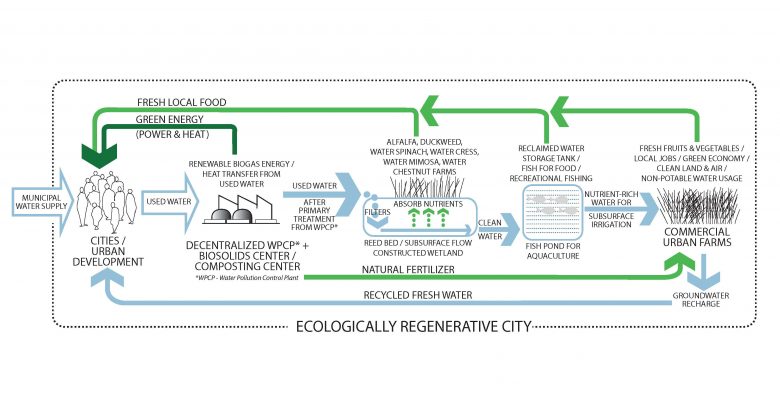Nature has been recycling water within the Earth’s closed ecosystem since the very beginning of time. Humans, although a part of the ecosystem, have misappropriated this precious reserve, severely imperiling the availability of freshwater for future use for all life on Earth. Civilizations have thrived or collapsed because of water. The restructuring of our established water and food systems is urgently needed in order to eliminate the constant waste inherent to present systems, and to reverse the detrimental impact they have had on our climatic system. Global warming, water scarcity, food insecurity, and social inequity are just some of the myriad problems facing cities globally. The decrepit state of much existing infrastructure provides a unique opportunity to implement major change. This research focuses the discussion on ecoshed planning – a new paradigm that conveys a multitude of benefits to humankind’s physical and social health, cities’ environmental and economic health; and above all, the health of the planet’s ecosystem. Ecoshed planning closes the loop of water and nutrients – the Resource Infinity Loop – by reclaiming wastewater through natural processes and reusing it for urban farming. San Francisco is well suited for implementing ecoshed-based planning, as shown by the system envisioned for one of the city’s watersheds. Arcata, a real-life, built example of these processes in use, which is now almost 40 years old, demonstrates how such a system can succeed. With rigorous multidisciplinary research and collaboration, and progressive policies that push boundaries, it is possible to build the ecologically-regenerative, resilient cities that the future requires.
This article originally appeared in a Special Issue dedicated to our Innovation Incubator Research: Vol 06.01 of the Perkins+Will Research Journal. CLICK HERE to see the whole article.

